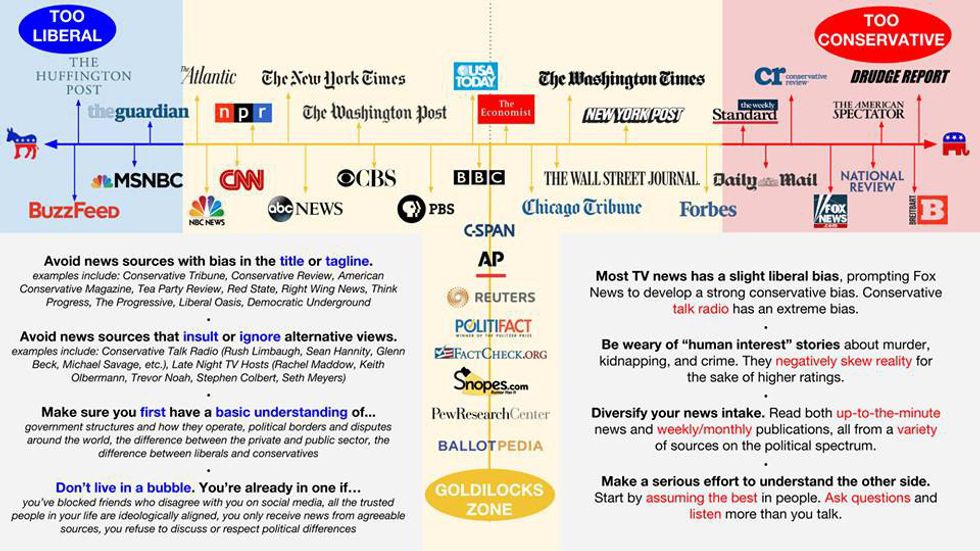So ever since the "fake news" scandal started rocking social media, I began to ask myself: "Should we really censor fake and intentionally misleading news?" While I still don't have an answer to that, I do believe that we as voters, consumers, etc. should have an educated choice when it comes to where we get our information. Which brings me to this article. I will be listing some trustworthy and non-trustworthy sites. Note that these are not in any particular order.
First we will start off with the trustworthy sites.
1. Snopes
Okay, okay, okay... before you dismiss me for my, ahem, liberal bias, hear me out. Snopes has been fact checking and myth busting since the mid 90s. And they have a habit of showing their work too; if you don't like the Snopes analysis, scroll to the end of the article and click one of the citations that they have. That simple.
2. Politifact
A project of the Tampa Bay Times, Politifact evaluates statements made by congressmen, the White House, lobbyists, and interests group. In fact they won a Pulitzer Prize for National Reporting in 2009, for "its fact-checking initiative during the 2008 presidential campaign that used probing reporters and the power of the World Wide Web to examine more than 750 political claims, separating rhetoric from truth to enlighten voters." They even have an "Obameter" which measures the performance of President Barack Obama in regards to his campaign promises.
3. National Public Radio
NPR makes it its initiative for accuracy in reporting. According to their website, "We tell stronger, better-informed stories when we sample a variety of perspectives on what we’re covering. The best reporting draws on the experiences of experts, influential figures and laypeople from across the demographic spectrum." They also talk about mistakes they have made covering past stories and how they apply those lessons going forward.
4. Public Broadcasting Service
In addition to having top quality educational programming, PBS also broadcasts news. As the majority of their funding comes from grants, telethons, fundraisers, and pledge drives, they receive little, if any corporate funding. They also make clear guidelines on how they maintain journalistic integrity.
And now for the not so trustworthy news sources. Not that these are hyper-partisan news sources who clearly swing to one side of the political spectrum.
1. Infowars
Home of ultra-conservative conspiracy theorist Alex Jones, Infowars is not the most accurate source of information. In fact, there is a video on forty-five of his failed predictions right here.
2. Breitbart
Big Journalism, Big Hollywood, and Big Government. This is what Milo Yiannopoulos and his ilk believe are taking over this country. The articles on the website are often condescending, often criticizing climate change scientists and the president, often times with very little evidence supporting their ideology.
3. Huffington Post
So imagine if Tumblr became a news outlet. That is essentially what the Huffington Post is. Since so many of the articles written on HuffPo are actually opinion articles, it is quite hard to sift fact from opinon when reading their articles.
4. Occupy Democrats
Arguably the most biased page you will see on this list by far. Occupy Democrats has the lowest rating on Politifact (only ONE of their statements rated Mostly True). With their misleading headlines and misinformation, they have as much journalistic integrity as the National Enquirer. Yes, I went there.
Now before I conclude this article I wanna show you guys a picture.
Luke Dzwonkowski constructed this diagram and it not only does it give you an approximation of what leans where, it also gives you some tips to consider when evaluating sources.




















